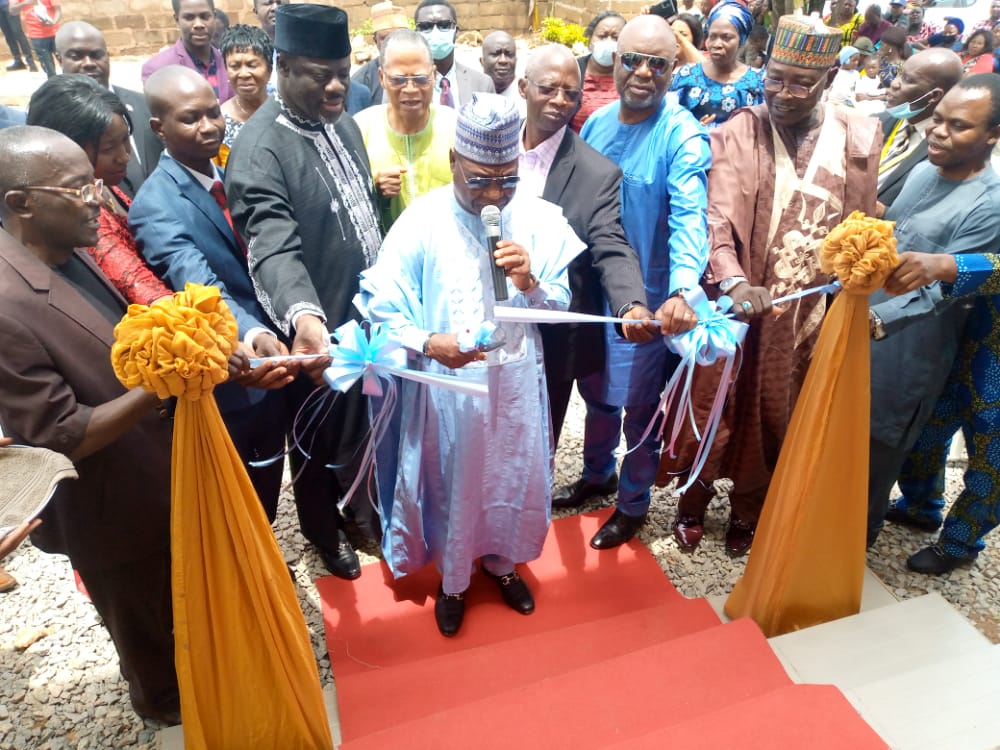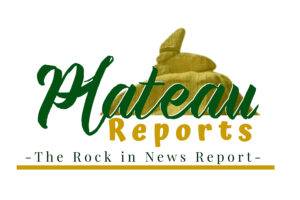Plateau politics has over the years shown some unique difference compared to others’ in terms of voter choices.
While in other States, voters tend to vote one political party from bottom-top of the ballot regardless of what candidates they present, in Plateau State, voters mostly prefer to go for the candidates regardless of their political party.
For instance, in the August 1979 general elections that heralded the second republic, Plateau State unanimously voted Solomon Lar of the Nigerian People’s Party (NPP) despite being part of the northern region which was chiefly controlled by the National Party of Nigeria (NPN). In fact, Plateau was the only State in the north which had so much support for the NPP – then regarded chiefly as an eastern political party.
Between 1993 – during Nigeria’s third republic and 2011, the voting patterns in Plateau State slightly changed – favouring the Presidential and Governorship candidates of the ruling political parties. Yet, national and State Assembly elections were highly diversified.
A classical example was when former Governor Joshua Dariye was elected Senator for Plateau Central Zone on the platform of the Labour Party in 2011, beating the candidate of the then ruling Peoples Democratic Party (PDP) – Dauda Gowon who is younger brother to former Head of State Yakubu Gowon.
Dariye was re-elected on the platform of the PDP in 2015 when the All Progressives Congress (APC) party won the Governorship elections for Plateau State.
Interestingly, despite winning the Governorships, the APC lost the Presidential elections in Plateau State that year. The same thing happened in 2019 when President Muhammadu Buhari was re-elected alongside Governor Simon Lalong in Plateau State. While Lalong won his election on the platform of the APC, Buhari lost the State to the PDP.
The recently held Presidential and National Assembly elections were no different. The candidate of the APC – Ahmed Tinubu was declared winner of the elections held across the country.
But he did lose in Plateau State, the home of his Campaign Director-General. A largely underrated candidate of the newly revived Labour Party – Peter Obi won the Presidential elections in the State with 466,272 votes based on the declared results.
The ruling APC polled 307,195 while the PDP which won in the state during the 2019 polls only garnered 243,808 votes.
The results which sprang a surprise on 25 February have remained a hot debate topic at different fora. Many analysts expect the same results to manifest during the State elections coming tomorrow.
But as already hinted, Plateau politics is uniquely dynamic and indeed unpredictable. However, a number of indicators might exist to give an idea of the likely prospects for each of the three leading political parties.
To begin with, Plateau currently has 2,755,017 registered voters according to data from the Independent National Electoral Commission (INEC). However, during the last elections, only 1,139,393 came out to vote. Surprisingly again, those that actually voted despite being accredited were 1,111,164. But that is not the concern here.
Based on the declared results for the Presidency, the Labour Party won in Jos South, Bassa, Shendam, Pankshin, Bokkos, Mangu, Langtang North, Riyom, Jos East, Barkin Ladi, and Jos North LGAs.
The APC won in Kanke, Kanam and Wase LGAs, while the PDP won in, Langtang South, Mikang and Quaanpan LGAs.
PDP Strongholds
But going by the popularity of these political parties as well as the influence of some significant figures associated with each of them, we can assume the PDP controls at least 11 out of 17 local governments in Plateau State. They include (along with their estimated voting populations):
Jos East 72000
Jos south 307000
Bassa 157000
Barkin Ladi 126000
Riyom 81000
Bokkos 130000
Mangu 224000
Mikang 63000
Quaanpan 171000
Langtang south 72000
Langtang North 136000.
APC strongholds
The APC on the other hand has control of
Jos north 490000
Kanke 102000
Kanam 164000
Wase 168000
Shendam 179000.
LP strength
The LP if anything has control of Pankshin with 141000 voters. During the last elections, the LP won in Jos North with 70,357. The APC which previously often swept the LGA scored 65,656 While the PDP scored 22,528.
The coming elections are likely to see a shift in this pattern because the majority of those that voted the LP in Jos north were Christians. There were three Muslim candidates from APC, PDP and NNPP which caused them to split the Muslim votes.
This time around, the Muslims have one direction – APC as advocated by some renowned Islamic scholars. The LP might still pull a chunk of votes from the Igbo dominated areas of the LGA but not as much as the PDP which controls the largest electoral ward in the LGA – Tudun Wada/Kabong. The ward alone has more than 90,000 registered voters.
In Shendam, Governor Lalong’s LGA, the LP again won with 25,825 votes to beat APC which scored 17,132 and the PDP which scored 8,444. However, that voting pattern may have been influenced by a protest against the Governor Lalong who is being accused of doing very little for the LGA since his emergence as Governor in 2015.
The same protest might reflect in tomorrow’s elections as the APC candidate – Nentawe Yilwada is largely seen to be a disciple and a close ally of the Governor. But the PDP which won the southern Senatorial elections might have a higher chance than the LP.
The LP Governorship candidate – Patrick Dakum does not seem to have the popularity and influence of the party’s Presidential candidate – Peter Obi in Shendam.
In Kanke, Kanam and Wase LGAs, the APC will definitely maintain its lead. The House of Assembly seat in Wase might likely go to the PDP due to the candidate’s popularity but not the Governorship.
This is because the party’s candidate hails from Kanke and has a strong support base in Wase and Kanam. If that happens, the APC has a guaranteed 434,000 votes if all registered voters in the LGAs cast their ballots.
From the 2015 and 2019 election results, Jos north is likely going to donate as many as 250,000 votes to the APC. That would give the party a potential 700,000 votes if added to its accrued votes from other LGAs.
But this is barely half of the PDP’s potential 1,425,600 votes from its aforementioned strongholds.
If the party eventually succeeds in squeezing the votes from Shendam in its favour, it would have an added 179,000 votes to brag about.
Be that as it may, the total voter turnout for the previous elections was only around 40%. This is expected to slump further as many voters dissatisfied with the results of the Presidential polls might avoid the polling stations.
Many again have shown interest only in the Presidential polls, considering the local elections as an internal competition with little or no effect regardless of the winner.
That said, an issue that has remained unclear is if the PDP with its bright chances will survive the wave of litigations against it, especially as it relates to the legality of the party executives that conducted its Primaries prior to the elections. But that will be topic for another day.
Culled from MK Reporters



















